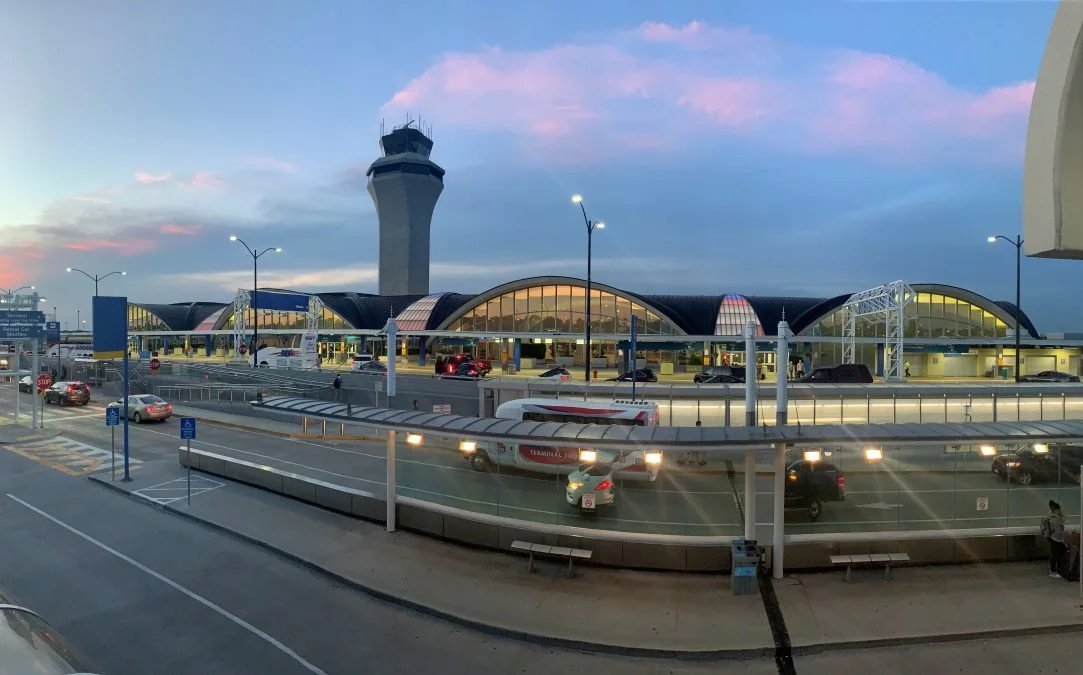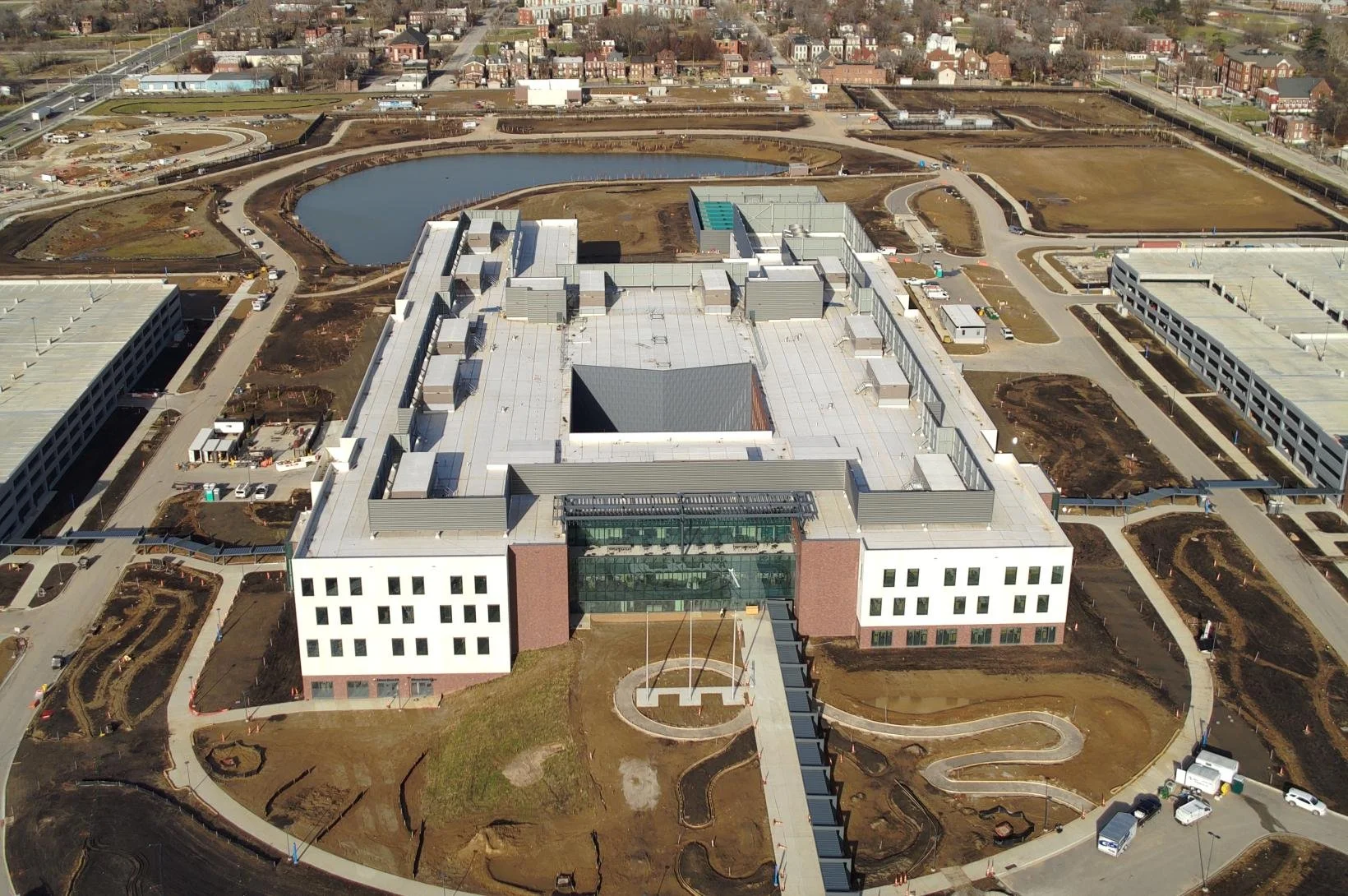Rendering courtesy of JEMA.
Q&A with STL construction leader, diversity champion Tony Thompson
Tony Thompon, president of Kwame Building Group (KWAME), has been paving the way for minorities and women in construction for decades.
As the construction manager and owner’s representative for marquee projects in St. Louis and major cities nationwide, KWAME facilitates strong WBE and MBE participation on projects. For decades, Tony also has fostered a highly diverse team at KWAME by developing young leaders right out of college and elevating senior leadership within the employee-owned firm.
Heightened labor shortages during the pandemic combined with a push for larger firms to diversify their workforce have disproportionately impacted small and minority businesses.
“Of all vulnerable small businesses, minority-owned ones may be most at risk,” according to a study by McKinsey & Company on COVID-19’s effect on minority-owned small businesses in the United States. “The crisis could disproportionately affect minority-owned small businesses for two critical reasons: they tend to face underlying issues that make it harder to run and scale successfully, and they are more likely to be concentrated in the industries most immediately affected by the pandemic.”
Thompson shared his first-hand perspective with MWM on the current labor situation and potential solutions to help mitigate diversity workforce challenges for small and large AEC firms alike.
What inspired you to create a highly diverse organization with mostly minorities and women in top leadership positions?
My own personal experience. When I worked at Anheuser Busch, I was blessed to be in an engineering department of 200 with only three black engineers. And, I was in the corporate project group where I was the only African American. I was assigned to 11 of the 13 breweries, and when I traveled around the country, I never saw any African Americans in leadership positions as project managers.
That's why I started my business representing the owner as the leader and the decision-maker. There were plenty of contractors, plenty of architects and designers, but there weren't very many people representing the owner. Someone had to break the ice.
Today, 80 percent of my staff are minority and women, and I pride myself on that. We have had a very talented team at a time when most people were saying they couldn’t find competent minority workers in engineering or construction.
There is a workforce shortage across multiple industries, including construction. How is this labor situation disproportionately impacting small and minority businesses?
When you have any type of adversity like supply chain issues and staffing challenges, it tends to hit smaller and minority businesses hardest. A lot of clients look for boots on the ground when selecting the team for a construction project. If you're already shorthanded of talented minority team members and then you start to lose them to larger firms that lure them away because of their own workforce challenges, it's a bigger challenge for small firms to replace them. It is easier for larger companies to offer money that a smaller firm perhaps can’t or is not willing to offer people with minimal experience to keep them from jumping ship.
Why do you think issues of retention in the AEC industry have increased recently?
I think that with COVID and remote working, people are reevaluating their work-life balance and priorities. Many senior workers have decided to retire at this time, and I sense the newer generation isn’t as committed as previous generations to a single employer. They are more willing to bounce around. For the most part, I think workers are moving to larger firms because of money. The bigger firms also tend to have a larger variety of projects and some people may want that variety. The other thing is perception — the perception that a larger firm is going to give them greater opportunities. That may or may not really be true.
How can firms continue to prioritize developing a diverse workforce during the labor shortage?
This is an opportunity to create a paradigm shift. Some people are leaving their firms for different opportunities and not necessarily for more money. Smaller businesses and minority firms can attract someone who worked with the big companies for decades and now is looking to have fun working at a medium or small firm where he is responsible for delivering a project as the lead.
It also seems to me that this is the ideal time for those larger firms to start bringing in junior-level minorities. You don't have to spend as much money on salary with an entry-level worker, but you do have to spend time training them, which is something more firms should have been doing all along. Recruit talent at the Historic Black Colleges and Universities and groom them into leaders. We wouldn't be in this labor situation now if more firms had created more opportunities for minorities in the past. I look at this time as the glass being half full, an opportunity for a shift in perspective and strategy.
Kwame Building Group is one of the nation’s top pure construction management firms with 100 percent of its resources dedicated to project management services. Celebrating its 30-year anniversary in 2021, the employee-owned company provides estimating, scheduling, project planning, value engineering and other project management services as an independent advocate for owners and developers.
KWAME’s public and private sector projects include educational facilities, major airports nationwide, light-rail systems, hospitals, wastewater treatment facilities and government facilities. Current projects include the St. Louis CITY SC’s state-of-the-art soccer stadium, the Cervantes Convention Center expansion project at The America’s Center and the $1.8 billion addition to the Washington State Convention Center in Seattle.
Q&A with St. Louis development executive Tom Kaiman
Sybrandy sees attractions driving CRE rebound
Since joining Koch Development Co. in 2012, Mandy Sybrandy has built a specialized team of managers and staff to operate SkyWheel® Attractions.
SkyWheel® started as a stand-alone iconic attraction in May 2011 with SkyWheel Myrtle Beach. Over the years, it has evolved into a full-service entertainment venue with a ropes course, Snack Shack and an 18-hole miniature golf course in its Panama City Beach, Fla. location.
Clayton, Mo-based Koch Development, who retains an ownership interest of SkyWheel, became the first company to bring an observation wheel of its type to the United States, with locations in Myrtle Beach, S.C. and Panama City Beach.
“Retailers and landlords see tremendous value in such iconic attractions because they attract customers to the location for entertainment and then capture their visit for traditional retail spending, especially as vacations and travel adapt post-COVID,” Sybrandy said.
According to its website, the SkyWheel® is not a carnival ride, but a modern, safe observation wheel towering almost 200 feet in the air with fully-enclosed gondolas offering a safe and secure flight with glass windows and doors for optimal views and photography. The gondolas are heated and cooled, allowing for year-round operation.
Sybrandy, who was recently promoted to vice president of attractions and installed as an officer of Koch Development, said that there are no current attraction opportunities under review in St. Louis.
“SkyWheel® is capitalizing on the power of bringing an experience to locations such as our location at Pier Park in Panama City Beach, Fla., where SkyWheel® enhances the marketability of traditional commercial real estate,” Sybrandy said.
Sybrandy sees great pent-up demand for travel now.
“Staycations and domestic travel within driving distance are accelerating,” Sybrandy said.
As a result, Sybrandy expects the Myrtle Beach and Panama City Beach locations to rebound this year.
Sybrandy graduated from Saint Louis University with a bachelor’s degree in organizational studies and a minor in hospitality management. She is a member of the International Association of Amusement Parks and Attractions and of the National Association of Amusement Ride Safety Officials, which focuses on operations.
Now entering its second century in business, Koch Development is a St. Louis-based, third-generation, family-owned company that develops, owns and manages a diverse portfolio of commercial real estate and entertainment attractions.








